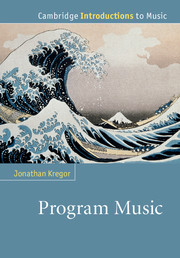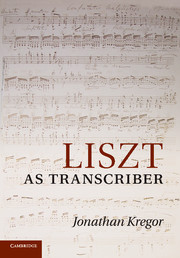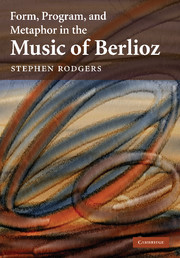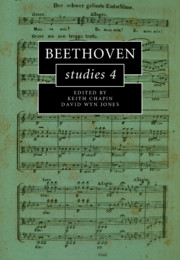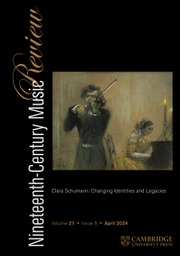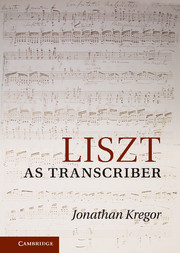Program Music
£75.00
Part of Cambridge Introductions to Music
- Author: Jonathan Kregor, University of Cincinnati
- Date Published: January 2015
- availability: Available
- format: Hardback
- isbn: 9781107032521
£
75.00
Hardback
Other available formats:
Paperback, eBook
Looking for an inspection copy?
This title is not currently available on inspection
-
Program music was one of the most flexible and contentious novelties of the long nineteenth century, covering a diverse range that included the overtures of Beethoven and Mendelssohn, the literary music of Berlioz and Schumann, Liszt's symphonic poems, the tone poems of Strauss and Sibelius, and compositions by groups of composers in Russia, Bohemia, the United States, and France. In this accessible Introduction, Jonathan Kregor explores program music's ideas and repertoire, discussing both well-known and less familiar pieces by an array of nineteenth- and twentieth-century composers. Setting program music in the context of the intellectual debates of the period, Kregor presents the criticism of writers like A. B. Marx and Hanslick to reveal program music's growth, dissemination, and reception. This comprehensive overview features numerous illustrations and music examples and provides detailed case studies of battle music, Shakespeare settings, and Goethe's Faust.
Read more- The first book in English in over a generation to deal exclusively with program music, a repertoire frequently heard but rarely written about
- Provides a wide range of examples and other illustrative materials to explain compositional practice and cultural and historical context
- Draws on primary source materials, including correspondence and reviews, to supply insights into program music's production, distribution, and legacy
Reviews & endorsements
'Jonathan Kregor's Program Music is easy to read, comprehend, and adjust to any educational level. The Cambridge Introductions to Music series boasts that the books are formulated to appeal to a wide range of students and interested readers; I would agree that this book meets those standards.' Patricia Josette Moss, Notes: Quarterly Journal of the Music Library Association
Customer reviews
Not yet reviewed
Be the first to review
Review was not posted due to profanity
×Product details
- Date Published: January 2015
- format: Hardback
- isbn: 9781107032521
- length: 332 pages
- dimensions: 253 x 180 x 18 mm
- weight: 0.83kg
- contains: 8 b/w illus. 26 tables 115 music examples
- availability: Available
Table of Contents
Introduction
1. Characters, topics, and the programmatic battlefield
2. Expression, musical painting, and the concert overture
3. Berlioz and Schumann on music and literature
4. Liszt and the symphonic poem
5. The New German School and beyond
6. Excursus: Faust
7. Programmatic paths around the fin de siècle: Mahler and Strauss
8. Programming the nation
9. 'Ars Gallica'.
Sorry, this resource is locked
Please register or sign in to request access. If you are having problems accessing these resources please email [email protected]
Register Sign in» Proceed
You are now leaving the Cambridge University Press website. Your eBook purchase and download will be completed by our partner www.ebooks.com. Please see the permission section of the www.ebooks.com catalogue page for details of the print & copy limits on our eBooks.
Continue ×Are you sure you want to delete your account?
This cannot be undone.
Thank you for your feedback which will help us improve our service.
If you requested a response, we will make sure to get back to you shortly.
×
